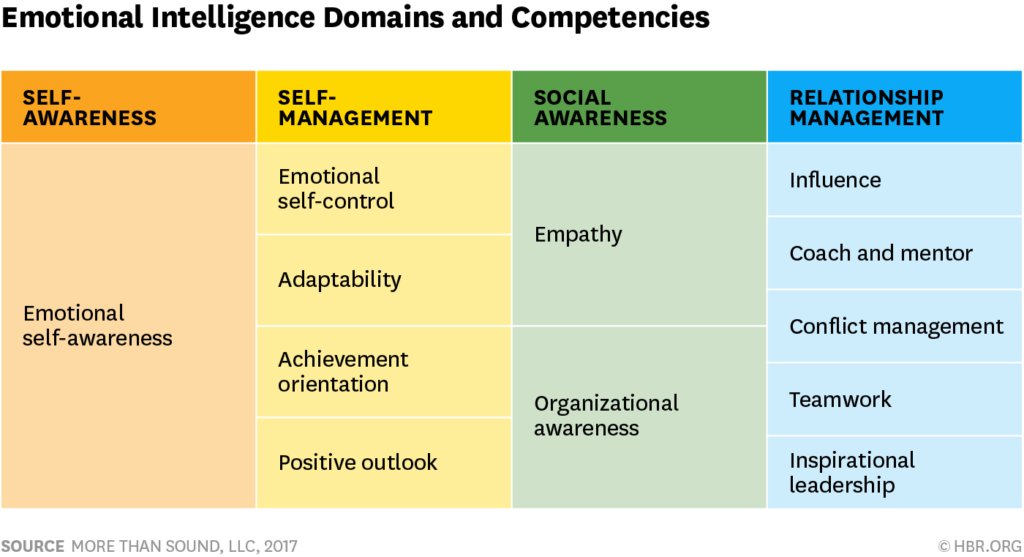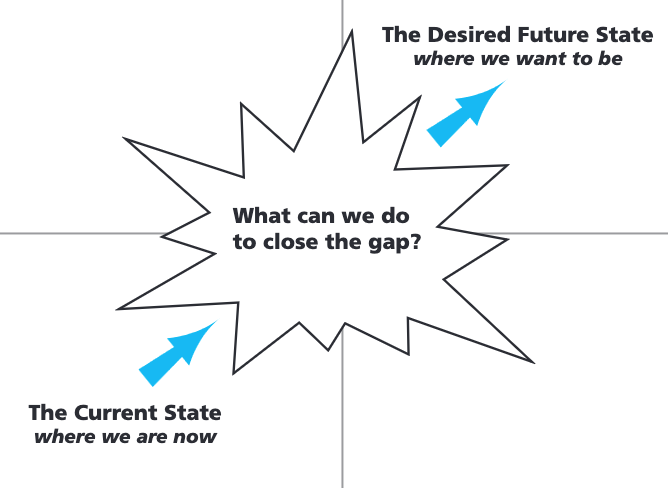Grit Lasts Longer Than Giftedness
Today’s Tuesday Reading is from Marcia Dority Baker, Leadership Coach at MOR Associates. Marcia may be reached at [email protected] or via LinkedIn.
A little more persistence, a little more effort, and what seemed hopeless failure may turn to glorious success. – Elbert Hubbard
I have an idea to share that I have seen play out in different areas of life. I offer this as an option to reframe a challenging situation into an opportunity to level up. So here it is; grit lasts longer than giftedness.
What is “grit”? Angela Duckworth, researcher and author, describes grit as the “perseverance and passion for long-term goals.” This ability to maintain progress toward an outcome despite challenges or unexpected obstacles in life. The passion one has to accomplish a goal and the perseverance to do the work make “grit” a characteristic leaders should cultivate.
Giftedness is a higher-than-usual intellectual abilities or a high IQ. Typically, giftedness is identified early in life, offering educational opportunities to explore or build that ability. While the ability to focus on one’s giftedness can lead to early career success, it can also isolate one from real-world experiences or the opportunity to learn with one’s peer group.
When we discuss Emotional Intelligence (EQ) in MOR programs, the first competency is self awareness, the ability to recognize our response to a situation or when our triggers are pushed. The second competency is self management, the ability to control and manage our response to a situation. A person with grit is aware of what they want to accomplish and can self manage their response to obstacles. Wisdom comes from experience. As leaders, we learn as we grow throughout our careers. Growing includes the ability to work smarter, not harder, a key component in cultivating grit.

While grit is seen as a skill for high achievers, the ability to influence others is necessary for leaders to accomplish goals. The third competency in EQ is social awareness, the ability to lead change and solve problems. A leader with grit can see the finish line and motivate the team to accomplish that goal. To persevere, a person with grit will cultivate and lean on relationships. The fourth EQ competency is relationship management. Being able to manage one’s emotions, navigate the response of others, influence the group to accomplish a goal, and maintain healthy relationships is a person with beneficial emotional intelligence and a leader with grit.
While understanding how we respond to challenges enables us to grow as leaders and cultivate grit, we need an action plan to accomplish goals. It’s great to have an idea, but creating a strategic plan to achieve that idea is what leaders do. The Desired Future State activity is foundational to all the MOR Leaders programs. This simple but powerful activity invites us to document the desired future state (where we want to be) and the current state (where we are now). The most important part of the activity is the action plan to move from the current state to the desired future state. The question, “How can we close the gap?” lets one strategize the path to success. A person with grit can work toward the desired future state despite challenges.

Energy and persistence conquer all things. – Benjamin Franklin
One of the MOR Maxims comes from the Marshall Goldsmith classic: What got you here won’t get you there. This maxim and the book acknowledge the leadership takeaway about grit. As leaders, we know that resting on one’s laurels is the quickest way to stagnate in our career or ability to lead our organizations. A growth mindset includes grit to overcome obstacles, seek out continued growth opportunities, and persevere when resources are tight and innovation is necessary for a healthy change.

Which of these characteristics of grit resonate with you?
Last week, we asked if developing a set of principles would help strengthen alignment in your organization.
- 41% said they lack alignment and think developing principles could help.
- 28% said they’re well aligned and it might be worth developing principles to reinforce.
- 9% said they lack alignment and don’t think this tool would help.
- 6% said they’re well aligned and don’t think developing principles would help much.
- 16% said they already have principles.

Wow! Last week’s article resonated, with over 2/3rds of us feeling we could benefit from focusing more on principles. We hope the suggestions in last week’s article are helpful to you in that journey. Also, for those of you with a MOR program cohort, they are another resource to lean on in this journey. Another interesting finding was that half of us feel our organizations lack alignment. Alignment is critical for organizations to function at their best. We hope you lead from where you are to find ways to strengthen that alignment. As discussed in today’s reading, this is the type of endeavor that requires grit to succeed.
Further Reading on Grit
- Duckworth, Angela. Grit: The Power of Passion and Perseverance (2016)
- Hardy, Benjamin. Take ownership of your future self Harvard Business Review (2020)
- November 2025 (2)
- October 2025 (5)
- September 2025 (5)
- August 2025 (7)
- July 2025 (5)
- June 2025 (4)
- May 2025 (5)
- April 2025 (5)
- March 2025 (4)
- February 2025 (4)
- January 2025 (4)
- December 2024 (3)
- November 2024 (4)
- October 2024 (5)
- September 2024 (4)
- August 2024 (4)
- July 2024 (5)
- June 2024 (5)
- May 2024 (4)
- April 2024 (5)
- March 2024 (5)
- February 2024 (4)
- January 2024 (6)
- December 2023 (3)
- November 2023 (4)
- October 2023 (5)
- September 2023 (4)
- August 2023 (4)
- July 2023 (4)
- June 2023 (4)
- May 2023 (5)
- April 2023 (4)
- March 2023 (1)
- February 2023 (1)
- January 2023 (4)
- December 2022 (3)
- November 2022 (6)
- October 2022 (4)
- September 2022 (4)
- August 2022 (6)
- July 2022 (4)
- June 2022 (4)
- May 2022 (5)
- April 2022 (4)
- March 2022 (4)
- February 2022 (3)
- January 2022 (4)
- December 2021 (3)
- November 2021 (4)
- October 2021 (3)
- September 2021 (4)
- August 2021 (4)
- July 2021 (4)
- June 2021 (4)
- May 2021 (4)
- April 2021 (4)
- March 2021 (5)
- February 2021 (4)
- January 2021 (4)
- December 2020 (4)
- November 2020 (4)
- October 2020 (6)
- September 2020 (5)
- August 2020 (4)
- July 2020 (7)
- June 2020 (7)
- May 2020 (5)
- April 2020 (4)
- March 2020 (5)
- February 2020 (4)
- January 2020 (4)
- December 2019 (2)
- November 2019 (4)
- October 2019 (4)
- September 2019 (3)
- August 2019 (3)
- July 2019 (2)
- June 2019 (4)
- May 2019 (3)
- April 2019 (5)
- March 2019 (4)
- February 2019 (3)
- January 2019 (5)
- December 2018 (2)
- November 2018 (4)
- October 2018 (5)
- September 2018 (3)
- August 2018 (3)
- July 2018 (4)
- June 2018 (4)
- May 2018 (5)
- April 2018 (4)
- March 2018 (5)
- February 2018 (5)
- January 2018 (3)
- December 2017 (3)
- November 2017 (3)
- October 2017 (5)
- September 2017 (3)
- August 2017 (5)
- July 2017 (3)
- June 2017 (8)
- May 2017 (5)
- April 2017 (4)
- March 2017 (4)
- February 2017 (4)
- January 2017 (4)
- December 2016 (2)
- November 2016 (7)
- October 2016 (5)
- September 2016 (8)
- August 2016 (5)
- July 2016 (4)
- June 2016 (12)
- May 2016 (5)
- April 2016 (4)
- March 2016 (7)
- February 2016 (4)
- January 2016 (10)
- December 2015 (4)
- November 2015 (6)
- October 2015 (4)
- September 2015 (7)
- August 2015 (5)
- July 2015 (6)
- June 2015 (12)
- May 2015 (4)
- April 2015 (6)
- March 2015 (10)
- February 2015 (4)
- January 2015 (4)
- December 2014 (3)
- November 2014 (5)
- October 2014 (4)
- September 2014 (6)
- August 2014 (4)
- July 2014 (4)
- June 2014 (4)
- May 2014 (5)
- April 2014 (5)
- March 2014 (5)
- February 2014 (4)
- January 2014 (5)
- December 2013 (5)
- November 2013 (5)
- October 2013 (10)
- September 2013 (4)
- August 2013 (5)
- July 2013 (8)
- June 2013 (6)
- May 2013 (4)
- April 2013 (5)
- March 2013 (4)
- February 2013 (4)
- January 2013 (5)
- December 2012 (3)
- November 2012 (4)
- October 2012 (5)
- September 2012 (4)
- August 2012 (4)
- July 2012 (5)
- June 2012 (4)
- May 2012 (5)
- April 2012 (4)
- March 2012 (4)
- February 2012 (4)
- January 2012 (4)
- December 2011 (3)
- November 2011 (5)
- October 2011 (4)
- September 2011 (4)
- August 2011 (4)
- July 2011 (4)
- June 2011 (5)
- May 2011 (5)
- April 2011 (3)
- March 2011 (4)
- February 2011 (4)
- January 2011 (4)
- December 2010 (3)
- November 2010 (4)
- October 2010 (4)
- September 2010 (3)
- August 2010 (5)
- July 2010 (4)
- June 2010 (5)
- May 2010 (4)
- April 2010 (3)
- March 2010 (2)
- February 2010 (4)
- January 2010 (4)
- December 2009 (4)
- November 2009 (4)
- October 2009 (4)
- September 2009 (4)
- August 2009 (3)
- July 2009 (3)
- June 2009 (3)
- May 2009 (4)
- April 2009 (4)
- March 2009 (2)
- February 2009 (3)
- January 2009 (3)
- December 2008 (3)
- November 2008 (3)
- October 2008 (3)
- August 2008 (3)
- July 2008 (4)
- May 2008 (2)
- April 2008 (2)
- March 2008 (2)
- February 2008 (1)
- January 2008 (1)
- December 2007 (3)
- November 2007 (3)
- October 2007 (3)
- September 2007 (1)
- August 2007 (2)
- July 2007 (4)
- June 2007 (2)
- May 2007 (3)
- April 2007 (1)
- March 2007 (2)
- February 2007 (2)
- January 2007 (3)
- December 2006 (1)
- November 2006 (1)
- October 2006 (1)
- September 2006 (3)
- August 2006 (1)
- June 2006 (2)
- April 2006 (1)
- March 2006 (1)
- February 2006 (1)
- January 2006 (1)
- December 2005 (1)
- November 2005 (2)
- October 2005 (1)
- August 2005 (1)
- July 2005 (1)
- April 2005 (2)
- March 2005 (4)
- February 2005 (2)
- December 2004 (1)